Women's Sport Week: Sports Minister Tracey Crouch on equality
- Published
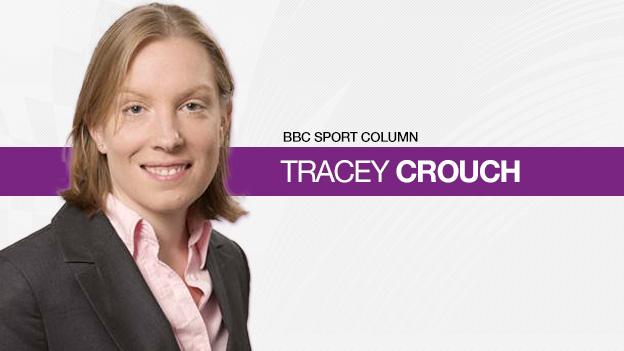
As part of Women's Sport Week, Sports Minister Tracey Crouch MP talks about her role as a football coach and why she feels sport must raise the equality bar.
I'm an FA-qualified football coach, and for the past eight years I've been managing a girls' team in my constituency.
Over that time I've seen the players grow from nervous girls into strong young women. But I've also seen how they've grown as people, how the game we love has taught them about leadership, teamwork and determination, boosted their self-esteem, even helped them through difficult times.
Sport can do incredible things for women and girls, but too often we're pushed to the sidelines. When I was a girl, I was told that I shouldn't play football. That getting muddy and sweaty isn't "ladylike". And we find that time and time again, when we challenge these stereotypes, when we compete at the highest level, our achievements are all too often ignored or belittled.
It's not right and it's not fair. That's why my excellent predecessor in this job, Helen Grant, set up the Women and Sport Advisory Board, which I was proud to be a member of.
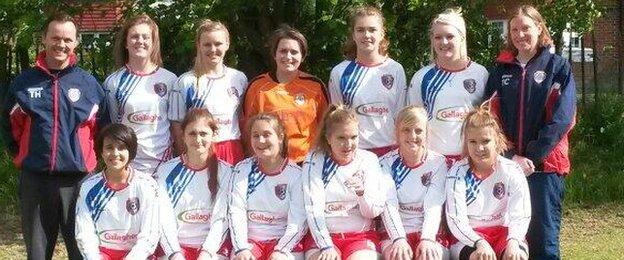
Tracey Crouch (right) is the Conservative Party MP for Chatham and Aylesford, as well as being a qualified coach
And there's no doubt that things are improving. For one thing, we're right in the middle of Women's Sport Week. Not so very long ago people would have laughed at the very idea of such a week even existing.
Sport England's This Girl Can campaign has been winning fans around the world and challenging perceptions about what women can and can't do.
We're seeing more women's sport on TV, for which much praise has to go to the BBC, Sky and BT Sport.
And women's teams are beginning to enjoy the kind of resources they have previously only dreamed of, thanks to sponsorship deals such as Kia's backing for the England women's cricket team and Newton's support for the Women's Boat Race.
All this activity is having an effect. Female participation in sport has increased since before the Olympics, with half a million more women playing sport every week than in 2011.
This Girl Can: New campaign urges more women to get active
But the picture's not all rosy.
For starters, while around nine million men play sport regularly, the number for women is two million lower - that's two million women who, for whatever reason, are missing out on all the good that sport can do.
The problems aren't limited to the grassroots. Pick up a national newspaper on an average day and, among page after page of reports about men's sport, you'll be hard-pressed to find anything about women.
And as Thursday's BBC Sport survey showed, even at the highest level, women still face unacceptable barriers simply because of their gender.
Around 40% of elite sportswomen say they have experienced sexism in sport, but only 7% felt able to report it. Nearly half don't think their governing body gives them a level of support equal to that enjoyed by their male counterparts. And more than 80% say they are underpaid compared with men.
So there's clearly a lot more work that needs to be done. After all, sport should be about what you can do on the pitch, in the pool, or on the track - not what gender you happen to be.
As Sports Minister, I'll be doing everything I can to iron out the inequalities facing women's sport. I hope to see the governing bodies joining me in this - and as many of them benefit from public funding in the form of Lottery cash and Sport England grants, I'd say they have a duty to do so.
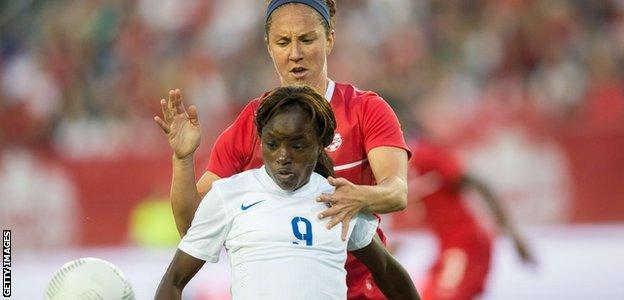
England were defeated 1-0 by host nation Canada in their final warm-up game before the World Cup
In the meantime, we can all look forward to the Women's World Cup, which kicks off this weekend in Canada.
I know it's not been the best of weeks for football off the field. But this gives us an opportunity to focus on what really matters in sport - the action on the pitch.
When England's campaign gets under way against France on Tuesday, their very presence at the World Cup will help to inspire women and girls across the country.
But I also hope that it will be catalyst for all sports fans, regardless of gender, to give all women's sport the support and respect it so clearly deserves.
- Published7 June 2015
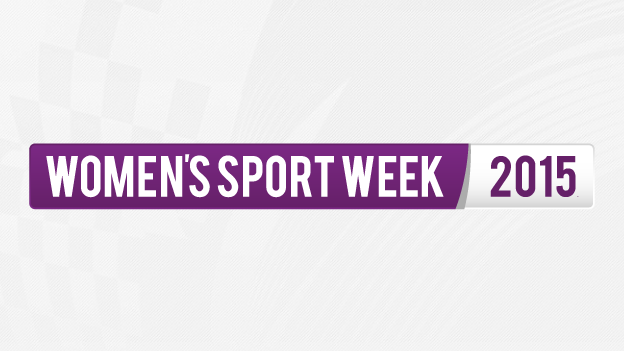
- Published5 June 2015
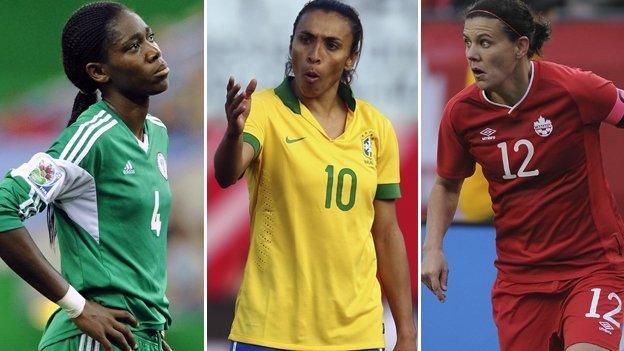
- Published5 June 2015
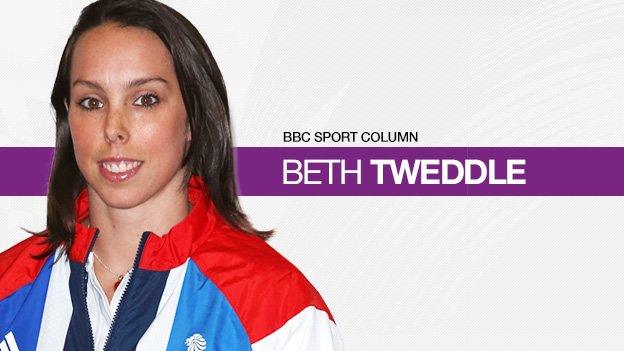
- Published4 June 2015
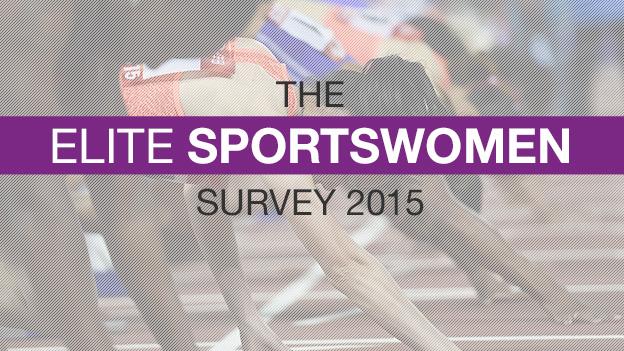
- Published23 June 2015
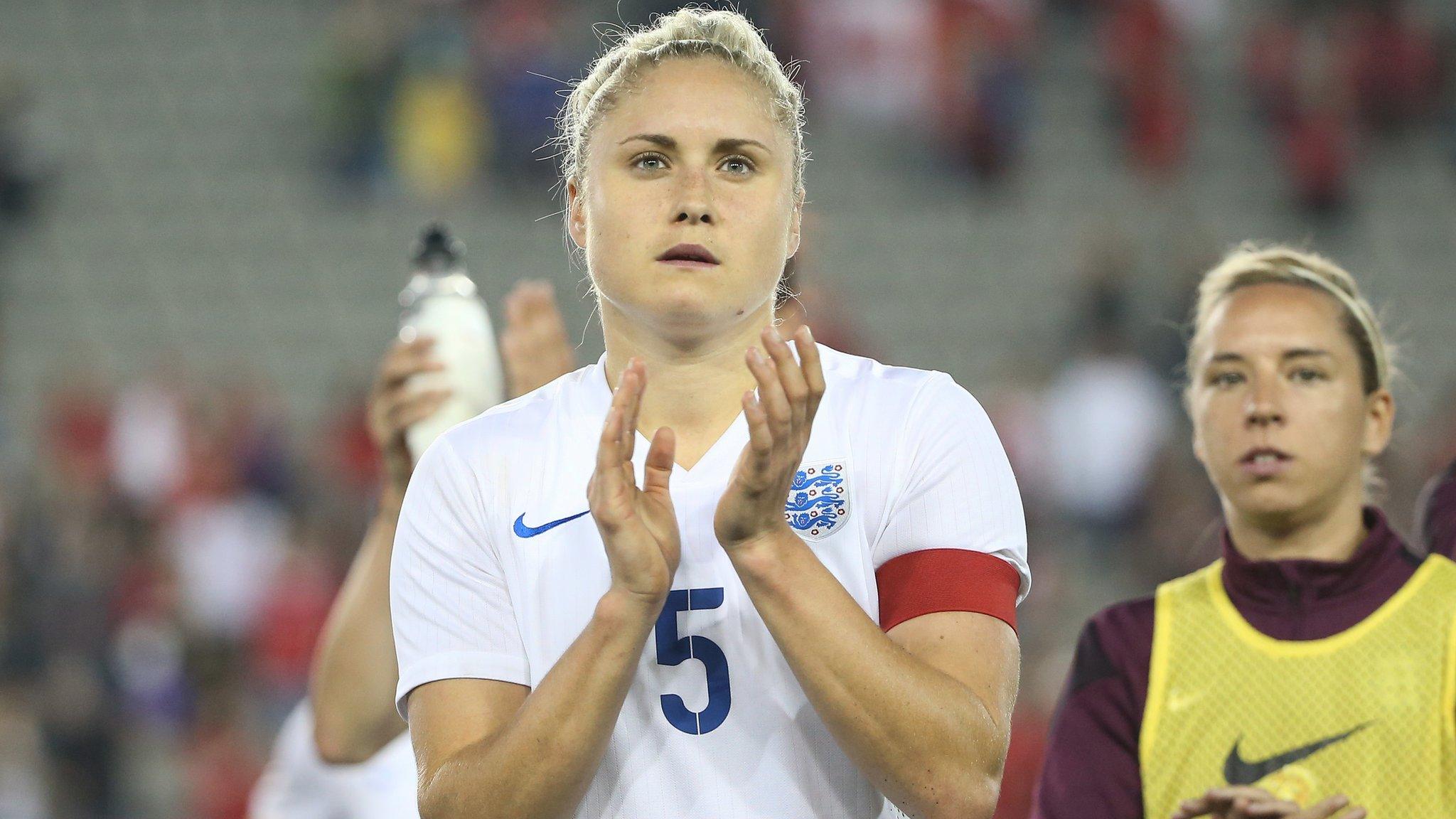
- Published20 June 2016

- Published7 June 2019
